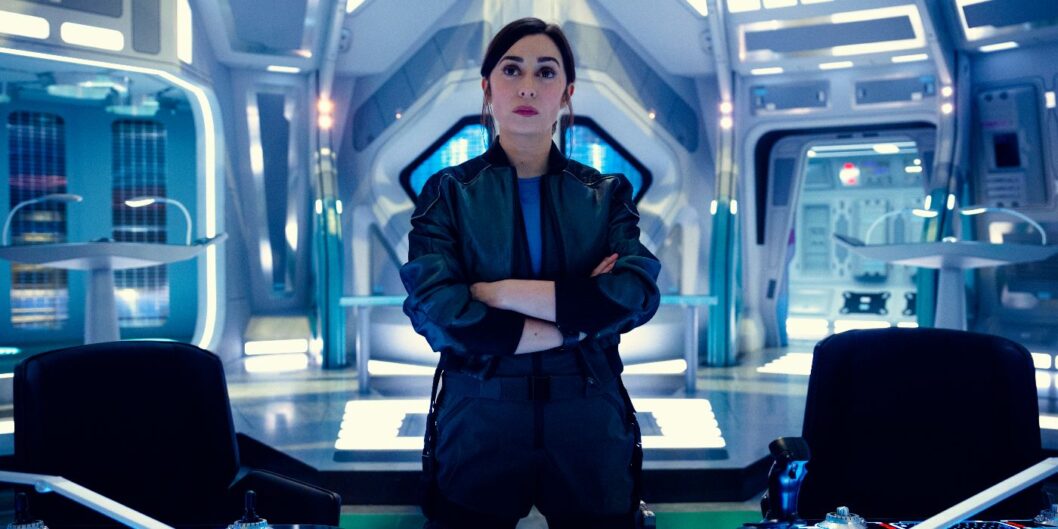The Evolution of Sci-Fi on Television: A Look at 10 Defining Series
The science fiction genre has seen significant evolution over the past 25 years, transitioning from niche offerings to mainstream hits that captivate audiences. This transformation has brought forth complex characters, morally ambiguous dilemmas, and mind-bending narratives, making sci-fi a beloved staple of modern television. Here, we highlight ten standout series that exemplify the genre’s impact, offering a blend of innovative storytelling, cultural significance, and unforgettable performances.
1. The Expanse (2015–2022)
The Expanse stands out as a pinnacle of realistic science fiction, drawing from the novels of James S. A. Corey. The series envisions a future where humanity has colonized the solar system, embroiled in political tensions among Earth, Mars, and the Belt. Central to the narrative is the crew of the Rocinante—played by Steven Strait, Dominique Tipper, Wes Chatham, and Cas Anvar—who navigate conspiracies that could alter humanity’s fate. Praised for its meticulous attention to detail and accurate depiction of space physics, the series challenged standard sci-fi conventions while maintaining a gripping political drama.
2. Fringe (2008–2013)
Dubbed the spiritual successor to The X-Files, Fringe follows FBI agent Olivia Dunham, portrayed by Anna Torv, and her companions Dr. Walter Bishop (John Noble) and his son Peter (Joshua Jackson) as they investigate bizarre cases involving parallel universes and genetic anomalies. The show initially adopted a case-of-the-week format but gradually developed a complex interconnected mythology. Its blend of disturbing phenomena with a sense of adventure captivated viewers while also marking the last on-screen appearance of Leonard Nimoy.
3. Doctor Who (2005–2022)
The long-running British classic Doctor Who showcases an infinite array of sci-fi concepts through the adventures of the Doctor, a time-traveling alien capable of regenerating into new forms. Since its revival in 2005, it has introduced notable actors like Christopher Eccleston, David Tennant, and Jodie Whittaker, each bringing their unique interpretation to the iconic role. The series is renowned for its imaginative storytelling, embracing everything from heartwarming moments to existential dilemmas, making it a favorite across generations.
4. Battlestar Galactica (2004–2009)
Battlestar Galactica redefined the sci-fi genre, merging thrilling space battles with philosophical inquiries. Set amidst the ruins of humanity after a surprise attack by the Cylons, the story follows Admiral William Adama, played by Edward James Olmos, commanding a fleet on a desperate search for safety. Its gripping, paranoid atmosphere and morally complex characters earned it a Peabody Award and established it as one of the most intelligent dramas in television history.
5. Westworld (2016–2022)
Adapted from a 1970s film, Westworld features a futuristic theme park where visitors indulge in violent escapades with android hosts. Through characters like Dolores Abernathy (Evan Rachel Wood) and Maeve Millay (Thandiwe Newton), the series delves into themes of consciousness and free will, questioning humanity’s moral fabric. The show’s philosophical underpinnings, combined with gripping narratives, position it as a touchstone in modern sci-fi discourse.
6. Severance (2022– )
Apple TV+’s Severance explores the chilling implications of workplace culture through a dystopian lens. The show features Mark Scout (Adam Scott), an employee who undergoes a procedure that separates his personal memories from his work life at Lumon Industries. The narrative raises unsettling questions about identity and autonomy in a corporate setting, proving that effective sci-fi doesn’t always depend on space travel but rather on engaging ideas and powerful character arcs.
7. Stranger Things (2016–2025)
Stranger Things successfully marries 1980s nostalgia with supernatural horror, following a group of kids in Hawkins, Indiana, as they encounter mysterious government experiments and parallel dimensions. The Duffer Brothers crafted a vibrant story that appeals to viewers of all ages, with iconic moments rooted in elements like Dungeons and Dragons. With a fifth and final season set to premiere, the show remains a cultural phenomenon, characterized by its engaging ensemble cast, led by Millie Bobby Brown as Eleven.
8. Black Mirror (2011– )
Black Mirror serves as an anthology that explores the darker aspects of technology’s influence on society. Each episode presents a self-contained narrative that often reveals the potential perils of our ever-increasing reliance on modern devices. Created by Charlie Brooker, the series features standout performances from actors such as Daniel Kaluuya and Hayley Atwell, each confronting challenging moral dilemmas as technology amplifies their fears. Its unsettling insights into human behavior ensure it remains relevant in today’s tech-driven landscape.
9. The Mandalorian (2019– )
The Mandalorian has reinvented the Star Wars franchise for television, following bounty hunter Din Djarin (Pedro Pascal) on his journey to protect a force-sensitive child named Grogu. Not only does it capture the classic western vibe, but it also emphasizes themes of loyalty and familial love. The series’ impact on pop culture is evidenced by the immense popularity of "Baby Yoda" merchandise, cementing its status as a cornerstone for future Star Wars storytelling.
10. Dark (2017–2020)
The German-language series Dark presents an intricate time-travel narrative woven through interconnected family dynamics in the fictional town of Winden. Viewers follow multiple timelines and characters dealing with love, betrayal, and existential struggles. Its complex engineering of plot and character, combined with mind-bending twists, has made it a standout in the realm of sci-fi series.
Conclusion
These ten series exemplify the growing sophistication of sci-fi television, each contributing uniquely to the genre. Their exploration of contemporary issues resonates with audiences, establishing science fiction as not just entertainment but a means to probe deeper questions concerning humanity’s future. As technologies advance and societal norms evolve, these narratives will continue to shape and reflect our understanding of the world around us.









